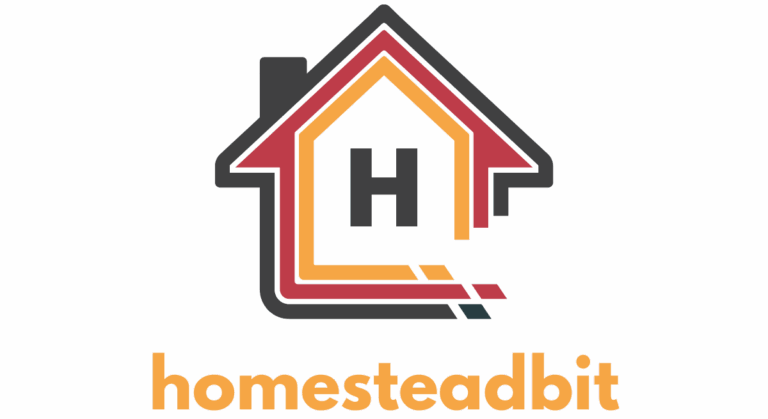In a world where virtual playgrounds reign supreme, Roblox stands out as a beacon of creativity and fun. But when did this digital wonderland first open its gates? Imagine a place where players can build, explore, and unleash their wildest imaginations—all from the comfort of their couch. That’s the magic of Roblox, and it all started back in 2006.
Table of Contents
ToggleOverview of Roblox
Roblox stands out as a leading platform for immersive online experiences. Launched in 2006, it transformed how users interact within virtual worlds. Players create unique games, explore diverse environments, and engage with communities. The platform also emphasizes creativity, allowing users to design their own game elements using Lua scripting.
Roblox’s ecosystem includes millions of user-generated games across numerous genres. Adventure, role-playing, obstacle courses, and simulation games populate its vast library. Monthly active users reached over 200 million in early 2021, demonstrating its growing popularity among various age groups.
The gaming experience on Roblox isn’t limited to just playing; it cultivates social connections. Users can communicate, collaborate, and share experiences with friends and other players. Virtual events, such as concerts and game launches, further enhance the interactive atmosphere.
To support game developers, Roblox provides various tools and resources. The Roblox Developer Hub offers documentation, tutorials, and community forums for new and seasoned creators. Revenue-sharing models incentivize developers by allowing them to earn Robux, the platform’s currency, through their creations.
This extensive platform continues to evolve, incorporating new features and technologies. As trends shift within the gaming industry, Roblox consistently adapts to meet user demands while fostering a vibrant community. The ongoing development ensures that Roblox remains a significant player in the world of online gaming.
Early Development
Roblox’s foundation began with the establishment of Roblox Corporation in 2004. Founders David Baszucki and Erik Cassel aimed to create an interactive platform for online play. The duo prioritized user creativity, focusing on a space where individuals could both play games and develop their own. This vision set the stage for a revolutionary digital experience.
Founding of Roblox Corporation
Roblox Corporation emerged as a significant player in the gaming industry. Established in 2004, the company wanted to break away from traditional gaming models. David Baszucki and Erik Cassel led the effort to create a user-centric platform. This approach emphasized community involvement, highlighting the importance of user-generated content. By 2006, their vision became reality as the platform transitioned from a developmental phase to a fully operational site.
Initial Concept and Design
The initial concept revolved around the idea of building a virtual universe. Gamers could create their own worlds and share them with others. Design elements included a focus on simplicity and accessibility, allowing users of all skill levels to engage with the platform. Lua scripting served as a core feature for game development, enabling customization and creativity. Early prototypes showcased these elements, paving the way for the expansive features users now enjoy.
Official Release
Roblox officially launched on September 1, 2006. This marked the beginning of its journey as a platform for user-generated content.
Date of Initial Release
The initial release of Roblox occurred in 2006. In that year, it introduced players to a new world where creativity thrived. Users started engaging in building and scripting games, utilizing Lua programming for interactive experiences. Over the years, this early release transformed into a robust platform, hosting millions of games and attracting a diverse audience.
Platform Launches
Roblox experienced multiple significant platform launches. The introduction of Mobile in 2012 allowed players to access games on smartphones and tablets. Subsequently, in 2015, the platform expanded its reach by launching on Xbox One. Each launch increased Roblox’s accessibility, enhancing its appeal among varied age groups. These expansions established Roblox as a versatile platform, easily accessible from various devices.
Major Updates and Changes
Roblox consistently evolves, introducing updates that enhance gameplay and expand user engagement. Developers continuously implement innovative features, ensuring players enjoy fresh experiences.
Introduction of New Features
Roblox introduced the avatar shop in 2007, allowing users to customize their avatars with various accessories and clothing items. In 2013, the platform launched game development tools to enhance creativity. By 2015, it integrated mobile compatibility, enabling users to access games on smartphones and tablets. The introduction of VR support in 2016 marked a significant leap forward, immersing players in virtual reality environments. More recently, the addition of in-game events and interactive tutorials has further diversified user experiences. These features keep the platform dynamic and engaging.
Community Engagement
Community interaction plays a vital role in Roblox’s success. Players express creativity by participating in user-generated events, such as game contests and community challenges. Active forums and social media channels facilitate discussions, allowing users to share ideas and feedback. In 2020, the platform introduced UGC, or User-Generated Content, empowering developers to create unique assets for games. Roblox frequently hosts events, such as virtual concerts and contests, to deepen connections among users. These initiatives foster a sense of belonging and camaraderie within the community, enhancing overall engagement on the platform.
Impact on Gaming Culture
Roblox has significantly influenced gaming culture since its launch in 2006. Players immerse themselves in user-generated worlds, encouraging creativity and collaboration. Millions of games across varied genres illustrate this creative freedom, with countless interactions shaping the gaming experience.
The platform’s emphasis on community engagement has transformed how players connect. Virtual events, concerts, and game launches create a lively atmosphere. Social interactions occur not just within games but also through forums and discussions, building a strong sense of belonging among users.
Developers benefit from Roblox’s robust support system. The Developer Hub provides essential tools and resources, fostering innovation and creativity. Revenue-sharing models incentivize game creation, empowering developers to earn Robux. This system has led to a thriving economy within the platform.
Roblox has also impacted educational approaches to game development. With accessible development tools, users learn programming concepts, particularly Lua scripting. Educational institutions recognize this potential, integrating Roblox into curricula to teach coding and critical thinking.
Cultural phenomena linked to Roblox are notable. The platform hosts user-generated events and challenges, engaging players beyond standard gameplay. Memes and trends originating within Roblox enhance its presence in social media, illustrating its role as a cultural touchstone.
Significant milestones mark Roblox’s journey of influence. Features like mobile access and VR support broaden player opportunities. Each achievement has reinforced Roblox’s position within the online gaming landscape, ensuring its place in modern culture.
Roblox has come a long way since its launch in 2006. It’s not just a gaming platform; it’s a vibrant community where creativity thrives. With millions of user-generated games and a dedicated developer support system, it continues to attract a diverse audience.
The platform’s evolution over the years reflects its commitment to enhancing user experience and fostering social connections. As it adapts to new trends and technologies, Roblox remains at the forefront of online gaming culture. The impact it has on creativity, collaboration, and community engagement is undeniable, making it a significant player in the gaming landscape.





